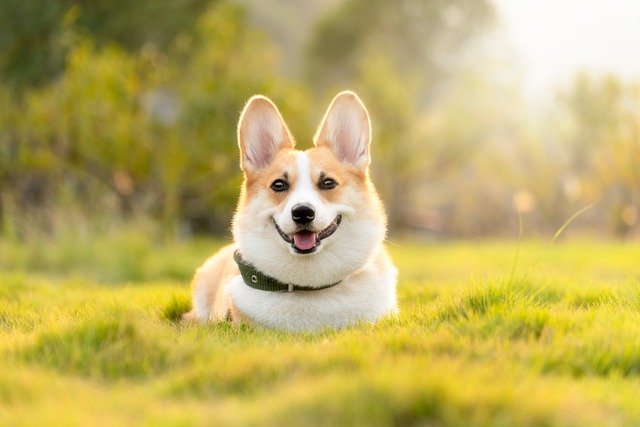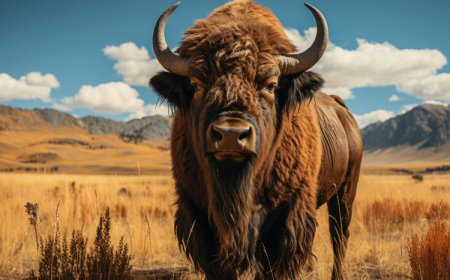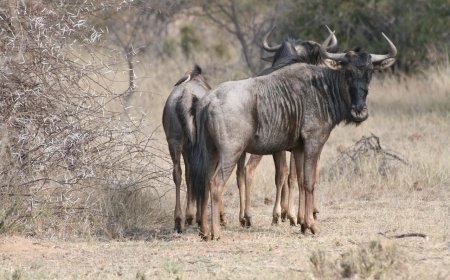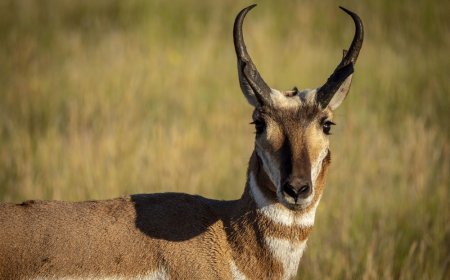All About Dogs for Students: From Wolves to Best Friends
Discover the fascinating world of dogs in this kid-friendly article for students aged. Learn about their evolution, breeds, behavior, senses, and role in human history. Includes fun facts, vocabulary, and a quiz!

🐶 Dogs: From Wild Wolves to Loyal Best Friends
📚 Scientific Name and Classification
Common Name: Dog
Scientific Name: Canis lupus familiaris
Classification: Kingdom Animalia → Phylum Chordata → Class Mammalia → Order Carnivora → Family Canidae
Dogs are among the most beloved and widespread mammals on Earth. From ancient hunting companions to modern service animals, dogs have lived beside humans for over 15,000 years. They are descendants of gray wolves and come in hundreds of breeds—ranging from tiny Chihuahuas to giant Great Danes.
🌍 Habitat and Geographic Range
Today, domestic dogs live in nearly every country in the world. They’re raised as:
- Pets in homes
- Working animals on farms
- Guard dogs in businesses
- Service animals helping people with disabilities
There are also feral dogs, which live in the wild near human communities, and dingoes, which are wild dogs found in Australia.
Dogs can live in many environments:
- Urban cities
- Suburban homes
- Rural areas and farms
- Arctic snow (e.g., Huskies and Malamutes)
🥩 Diet and Feeding Habits
Dogs are omnivores, which means they can eat both meat and plants. However, their diet should still be high in protein.
In the wild, wolves (their ancestors) hunt:
Deer
Rabbits
Birds
Domestic dogs typically eat:
Commercial dog food (kibble or canned)
Meat, vegetables, rice, and grains
Treats like biscuits, bones, and peanut butter
Some dogs are trained to avoid harmful foods like chocolate, grapes, or onions, which can be toxic.
🧠 Behavior and Intelligence
Dogs are incredibly loyal, smart, and social animals.
- They communicate through barks, growls, whines, tail wags, and body language.
- They understand tone of voice, facial expressions, and commands from humans.
- Some breeds, like Border Collies and Poodles, are known for solving puzzles and following complex commands.
Dogs form strong emotional bonds with their human families. They can feel joy, fear, stress, and even jealousy. That’s why dogs are often used in therapy and emotional support roles.
🐾 Physical Features and Special Adaptations
Size and Shape: Dogs vary widely in size.
Smallest breed: Chihuahua (as little as 2 lbs)
Largest breed: Great Dane (up to 200 lbs)
Coats: Short-haired, long-haired, curly, or double-layered (for cold weather)
Tail types: Curled, docked, straight, or bushy
Paws: With pads that provide grip and insulation
Super Senses:
Smell: A dog’s sense of smell is up to 100,000 times better than humans.
Hearing: Dogs can hear ultrasonic frequencies that people can’t detect.
Sight: Dogs can see in low light and detect motion well, but their color vision is limited (they see mostly blues and yellows).
🍼 Life Cycle and Reproduction
Mating: Dogs are usually ready to breed by 6–12 months old
Gestation: About 58–65 days (about 2 months)
Litter size: Typically 4–8 puppies, but can be more
Puppy development:
Eyes and ears open by 2 weeks
Start walking and playing at 3–4 weeks
Fully weaned at 6–8 weeks
Lifespan:
Small dogs: 12–18 years
Large dogs: 8–12 years
Some dogs have lived up to 30 years!
🛡️ Jobs and Roles in Human Life
Dogs have done important jobs throughout history:
- Hunting companions
- Sled pulling in the Arctic
- Herding livestock (e.g., sheepdogs)
- Search and rescue teams
- Police and military service
- Guide dogs for the blind
- Therapy animals for mental health support
⚠️ Threats and Animal Welfare
Dogs are protected in most countries, but some face mistreatment, neglect, or abandonment. Challenges include:
Overpopulation in shelters
Illegal breeding or dogfighting
Lack of veterinary care in poor regions
Groups like the ASPCA, Humane Society, and local rescues work to protect dogs, promote adoption, and educate owners.
🎉 Fun Facts About Dogs
Dogs have sweat glands only in their paws—they cool down by panting.
The Basenji is a dog that doesn’t bark—it yodels!
A Greyhound can run up to 45 mph—almost as fast as a cheetah over short distances.
Puppies are born with their eyes closed and open them after about 2 weeks.
Each dog’s nose print is unique—just like a human fingerprint.
🧠 Vocabulary List
Omnivore – An animal that eats both plants and animals
Canine – A word referring to dogs
Domesticated – Tamed and raised by humans
Feral – An animal that was once domestic but now lives in the wild
Breed – A specific group of dogs with common traits
Puppy – A baby dog
Pack – A group of dogs or wolves
Scent detection – A dog’s ability to find things using its nose
Therapy dog – A dog trained to comfort people
Service dog – A dog trained to help people with disabilities
✅ Dog Quiz: How Well Do You Know Man’s Best Friend?
1. What is the scientific name for the domestic dog?
A. Canis lupus
B. Felis catus
C. Canis lupus familiaris
D. Equus caballus
2. What sense is strongest in dogs?
A. Sight
B. Touch
C. Smell
D. Taste
3. What is a group of dogs or wolves called?
A. Herd
B. Pod
C. School
D. Pack
4. Which dog breed is known for helping blind people as guide dogs?
A. Dalmatian
B. Pug
C. Golden Retriever
D. Chihuahua
5. What can a dog’s nose print be used for?
A. Breeding
B. Hearing
C. Swimming
D. Identification
🐶 Popular Dog Breeds and What Makes Them Special
🧠 Smart and Trainable Breeds
These breeds are known for intelligence and ability to learn commands quickly.
Border Collie – Often called the smartest dog breed; used for herding sheep.
Poodle – Very smart and hypoallergenic; comes in standard, miniature, and toy sizes.
German Shepherd – Loyal and brave; used by police and military around the world.
Golden Retriever – Friendly and eager to please; often used as service dogs.
Labrador Retriever – One of the most popular breeds; great with kids and training.
🐾 Small and Toy Breeds
These breeds are small in size but big in personality.
Chihuahua – Tiny but bold; known for loyalty to one person.
Pomeranian – Fluffy and energetic; loves attention.
Yorkshire Terrier (Yorkie) – Silky coat and fearless attitude.
Shih Tzu – Bred for royalty in China; gentle and sweet.
Dachshund – Long body and short legs; also called “wiener dogs.”
🧸 Big, Gentle Giants
These dogs are large in size and usually calm and affectionate.
Great Dane – One of the tallest dog breeds; friendly and laid-back.
Newfoundland – Great swimmers; known as “nanny dogs” for their care of children.
Saint Bernard – Used in mountain rescue; huge, strong, and gentle.
Bernese Mountain Dog – Fluffy and affectionate; loves cold weather.
🏃 Active and Working Breeds
These dogs were bred for specific jobs and need lots of exercise.
Siberian Husky – Beautiful blue eyes; bred for pulling sleds in snow.
Australian Shepherd – Great herders; needs a job to stay happy.
Boxer – Playful and muscular; great family pets.
Doberman Pinscher – Alert and loyal; often used as guard dogs.
Belgian Malinois – Agile and hardworking; often used in military and police work.
💼 Companion and Lap Dogs
These dogs love to cuddle and are perfect indoor pets.
Cavalier King Charles Spaniel – Sweet, affectionate, and friendly.
French Bulldog – Small with big ears and a silly personality.
Maltese – White, silky coat and gentle nature.
Boston Terrier – Lively and loving; has a tuxedo-like coat.
🧬 Unique and Ancient Breeds
These breeds have interesting histories and features.
Basenji – The “barkless” dog that makes a yodel-like sound.
Akita – Loyal and protective; originally from Japan.
Saluki – One of the oldest breeds; sleek and fast.
Shar Pei – Known for its deep wrinkles and loyalty.























































